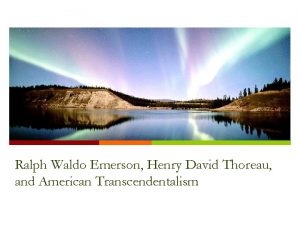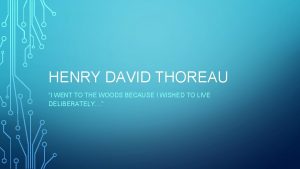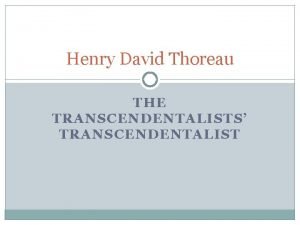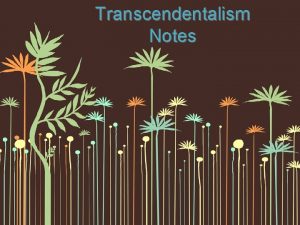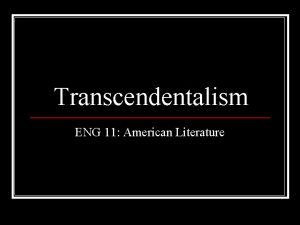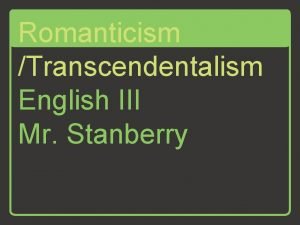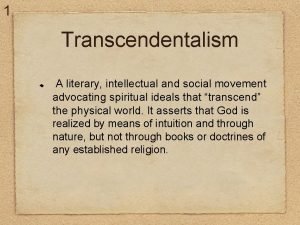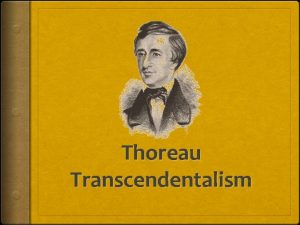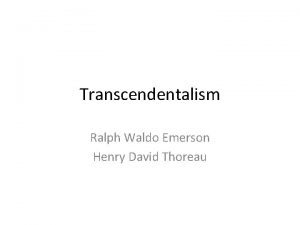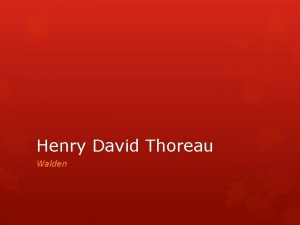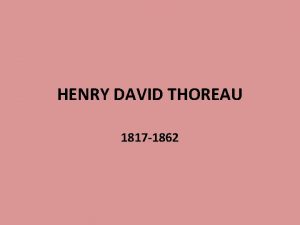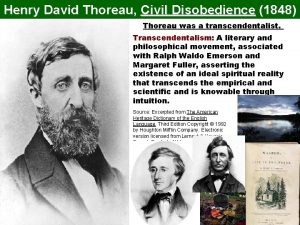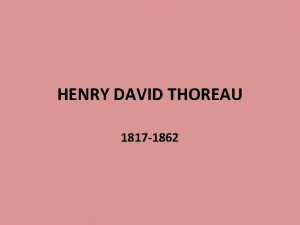Henry David Thoreau Transcendentalism A philosophical and literature







- Slides: 7

Henry David Thoreau

Transcendentalism • A philosophical and literature movement • Started by Emerson • Critics of: – Contemporary society for its unthinking conformity – Logic and materialism • Goals/Values: – Want individuals to find an original relation to the universe – Discover real truth through intuition, spirituality, and our relationship with the rest of the universe

Henry David Throeau • Taught, but quit after two weeks because he refused to use corporal punishment on students • Published first book of transcendental poetry in 1840 • Admired Emerson, and lived with Emerson and his family from 1841 -1844 • Actively fought against slavery and wrote to support the work of his fellow abolitionists

Thoreau's Beleifs • Both spiritual and scientific • In science: – Supported Darwin’s, then controversial, theory – "Science is always brave, for to know, is to know good; doubt and danger quail before her eye. ” – Aware of science’s limitations, “With all your science can you tell how it is — & whence it is, that light comes into the soul? “ • In religion: – "I do not prefer one religion or philosophy to another. I have no sympathy with the bigotry and ignorance which make transient and partial and puerile distinctions between one man’s faith or form of faith & another’s”

Civil Disobedience • Thought it a person’s duty to fight injustice wherever it is found – "Can there not be a government in which the majorities do not virtually decide right and wrong, but conscience? . . . Must the citizen ever for a moment, or in the least degree, resign his conscience to the legislator? Why has every man a conscience, then? “ – This essay inspired: • Gandhi • Tolstoy • Dr. Martin Luther King Jr.

Walden • As a naturalist, believes that the only way to understand our life on earth is to develop a greater understanding of the natural world • “We can never have enough of nature. We must be refreshed by the sight…We need to witness our own limits transgressed, and some life pasturing freely where we never wander. "

Found Poetry • Takes existing texts and refashions them • Literary equivalent of a collage • A pure found poem incorporates only words from outside works • Forming the poem itself (where to break lines and so on) are up to the poet • The original meaning of the text should remain intact, but doubles the context (is a reflection of Thoreau’s and your transcendental ideas)
